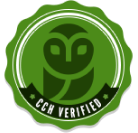
Insights from a
Defence Lawyer

 CCH VERIFIED
CCH VERIFIEDCéline Dostaler
Insights from Ottawa Lawyer, Céline Dostaler
Strategies To Defend A Drug Charge
There are several defences that a lawyer may use to defend against a drug charge. Some of these include:
- Entrapment: This defence argues that the accused was induced or coerced by the police into committing the crime and, therefore, should not be held responsible.
- Lack of knowledge: If the accused can prove that they did not know they had drugs or did not know the substance they had was a controlled substance, they may be able to have the charges dropped.
- Illegal search and seizure: If the evidence against the accused was obtained illegally through an unlawful search or seizure, the lawyer could argue for it to be excluded from the trial and have the charges dropped.
- Charter Rights violations: If the accused's rights under the Canadian Charter of Rights and Freedoms were violated, the lawyer could argue for the charges to be dismissed.
- Duress: If the accused was under threat of harm and committed the offence under pressure, this could be used as a defence.
- Necessity: In some cases, the accused may argue that they committed the offence out of necessity, such as in the case of self-medication or providing for a person with a medical need.
It's important to note that these defences are not guaranteed to be successful, and the case outcome will depend on the specific facts and circumstances.
Click to Call Celine Dostaler: (613) 863-8595
Glossary of Legal Terms
Controlled Drugs and Substances Act
The Controlled Drugs and Substances Act sets the rules about unlawful drugs in Canada and defines "schedules" or categories based on their perceived personal and public safety dangers. It also set out the punishment for individuals who engage in the possession, trafficking, and production of those drugs.
Controlled substance
Any type of drug that the federal government has categorized as having a higher-than-average potential for abuse or addiction. Its manufacture, possession or use is regulated by the government through the Controlled Drugs and Substances Act.
Criminal Code
The Criminal Code is a federal statute that defines and sets out punishments for most of the criminal offences that the Parliament of Canada has enacted.
Hybrid offence
Hybrid offences fall between a summary and an indictable offence. The Crown prosecutor chooses whether to treat the offence as a summary or indictable offence.
Indictable offence
Indictable offences are the most serious offences under the Criminal Code and they come with more serious punishments, up to a maximum penalty of life in prison.
Reasonable doubt
The Supreme Court of Canada has said that reasonable doubt “falls much closer to absolute certainty than to proof on a balance of probabilities” and “that something less than absolute certainty is required, and that something more than probable guilt is required."
Schedule I
Schedule I drugs are commonly characterized as “hard drugs.” They include street drugs such as heroin, cocaine, and opium and numerous pharmaceutical-grade drugs such as oxycodone and morphine. Schedule I drugs show a high risk of dependency. See Schedule I of the Controlled Drugs and Substances Act.
Schedule II
Schedule II drugs include synthetic cannabinoid receptor type 1 agonists, their salts, derivatives, isomers, and salts of derivatives and isomers. Until 2018 this category included drugs falling within the cannabis family but are now dealt with under the Cannabis Act. See Schedule II of the Controlled Drugs and Substances Act.
Schedule III
Schedule III drugs include the amphetamine family, including methamphetamine and lysergic acid diethylamide, better known as LSD. Most hallucinogens are classified under Schedule III. See Schedule III of the Controlled Drugs and Substances Act.
Schedule IV
Schedule IV drugs include popular pharmaceuticals such as diazepam, benzodiazepine and anabolic steroids. See Schedule IV of the Controlled Drugs and Substances Act.
Schedule V
Schedule V lists a group of novel fentanyl precursors used in the illegal production of fentanyl and substances chemically related to fentanyl. See Schedule V of the Controlled Drugs and Substances Act.
Summary offence
Summary offences are less-serious criminal offences such as disturbing the peace or unlawful assembly

